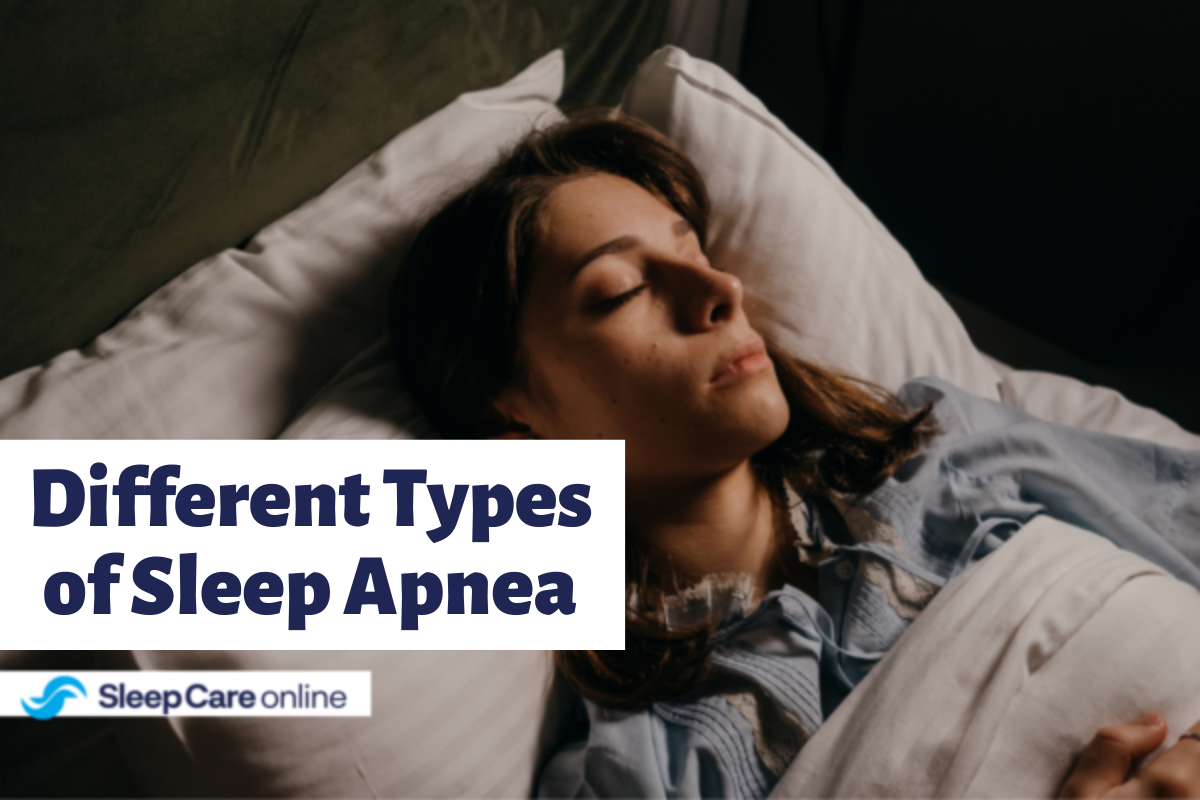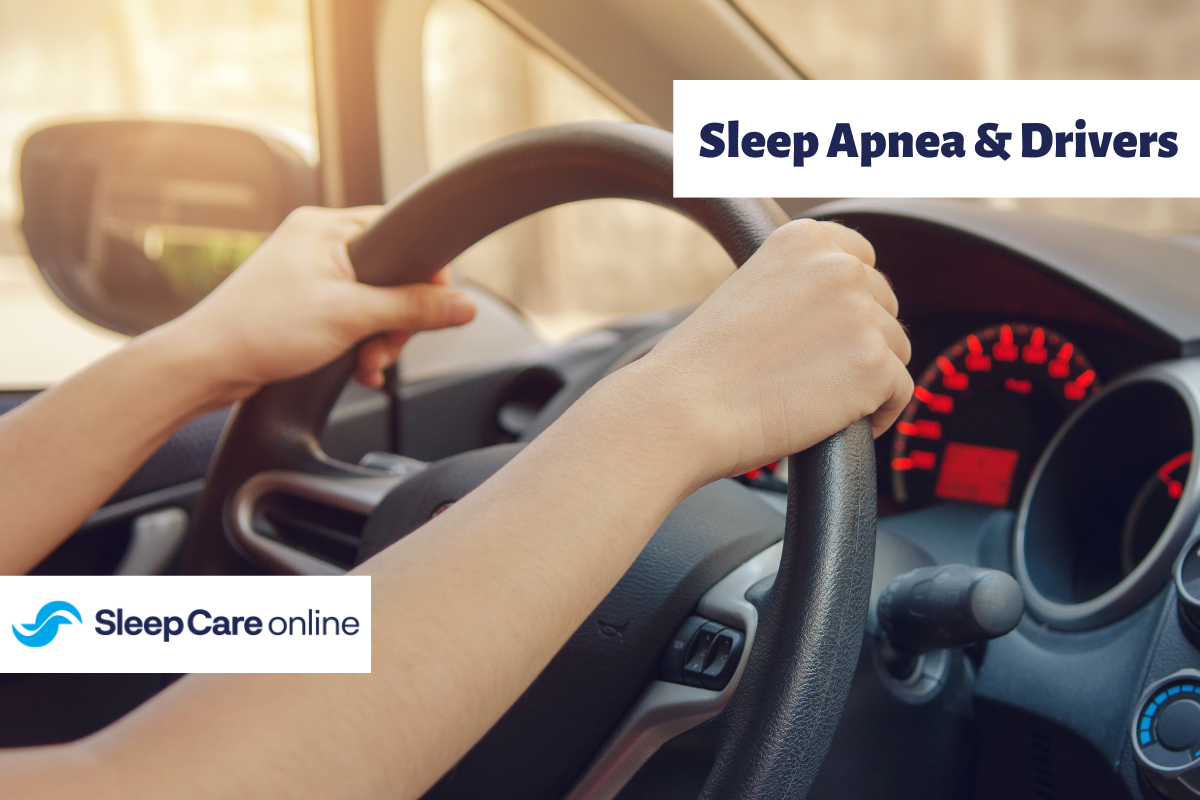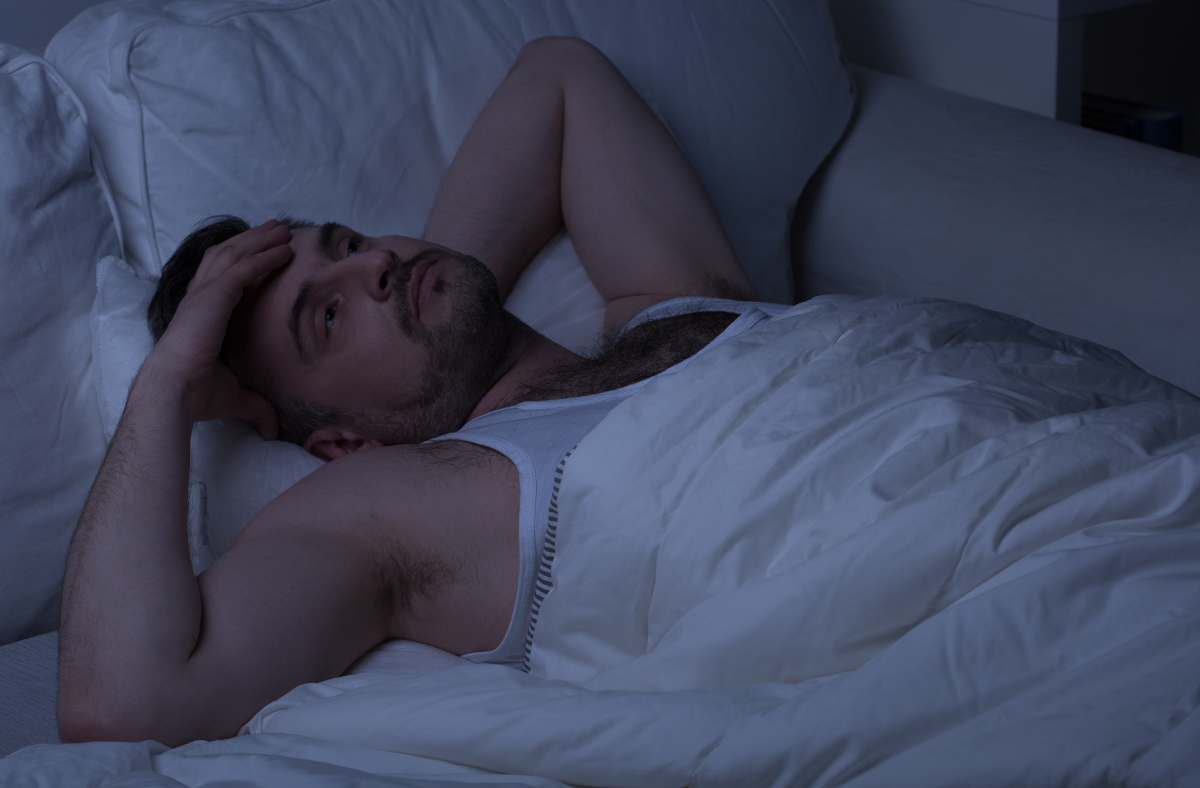Sleep apnea is a condition that affects nearly 1 in every 15 Americans. Sleep apnea causes the airway to close during sleep, preventing normal breathing. Frequent sleep apnea eventually causes long-term disrupted sleep and health conditions related to sleep loss. Three different types of sleep disorders can be diagnosed: obstructive sleep apnea, central sleep apnea, or complex sleep apnea (a combination of obstructive and central). Understanding the type of sleep apnea that you suffer from is the first step toward effective treatment.
Obstructive Sleep Apnea
Obstructive sleep apnea is a common sleep disorder in which your breathing stops and restarts many times while you sleep. This can prevent your body from getting enough oxygen. The most common type of sleep apnea, obstructive sleep apnea, is caused by the airway periodically closing during the night, which causes gasping for breath. Frequent episodes or “apneas” eventually lead to chronic sleep deprivation. Along with sleep loss, the condition, if left untreated, can lead to other mental and physical health issues.
Most people don’t realize they have sleep apnea and remain undiagnosed for many years, if not a lifetime. Many people rationalize sleep apnea by living with just always being tired.
Symptoms of Obstructive Sleep Apnea
- Loud snoring: as air struggles to pass through the airway loud snoring is a result.
- Excessive daytime sleepiness: sleep lost at night leads to drowsiness during the day.
- Gasping or choking during sleep: as your airway closes during an apnea, you choke to regain normal breathing.
- Morning headaches: sleep apnea causes reduced oxygenation to the brain, which leads to frequent headaches.
- Cognitive impairment: long-term sleep deprivation affects your ability to pay attention and remember.
- Irritability and mood swings: long-term sleep loss can also affect your mood.
- Nocturnal awakenings: sleep apnea episodes will wake you up frequently at night.
- Dry mouth and sore throat: patients with sleep apnea are often mouth breathers, which can leave the mouth and throat dry and sore in the morning.
- High blood pressure and obesity: health risks related to sleep loss from sleep apnea include elevated blood pressure and weight gain.
What are the Causes of Obstructive Sleep Apnea?
- Anatomy of obstruction: the structure of your airway may make it more likely to close at night.
- Muscle tone and airway collapse: weakened throat muscles are also more likely to fall closed during sleep.
- Neurological factors: nerve and brain issues may trigger airway closure.
- Sleep position: your sleep position can aggravate sleep apnea conditions.
- Lifestyle and environmental influences: erratic sleep patterns, use of alcohol and sedatives, and other behaviors can cause sleep apnea.
- Genetic predisposition: you may have been born with sleep apnea tendencies.
- Hormonal imbalances: hormonal imbalances can also cause periods of sleep apnea at different stages of life.
Treatment of Obstructive Sleep Apnea
- Continuous Positive Airway Pressure (CPAP) Therapy: the use of a CPAP machine keeps the airway open with pressurized air while you sleep.
- Oral appliances: devices worn during sleep can help keep the airway open.
- Lifestyle modifications: lifestyle changes such as reducing alcohol use, losing weight, and adjusting to a consistent sleep pattern can help reduce the symptoms of obstructive sleep apnea.
Central Sleep Apnea
Central sleep apnea originates in the brain rather than the airway. During sleep the brain sends the wrong signals to the airway muscles, instructing the airway to close when it should not. CPAP therapy is often ineffective for central sleep apnea treatment as it is neurological in origin.
Symptoms of Complex Sleep Apnea
- Loud Snoring: your bed partner will notice this symptom at night.
- Hypersomnia: you find the need for sleep during the day because of sleep loss at night.
- Gasping During Sleep: you react to interrupted breathing by choking and gasping.
- Issues with Focus and Attention: your sleep loss will affect your ability with cognition.
- Behavior Changes: sleep loss will affect behavior and mood.
- Insomnia: you have difficulty sleeping at night.
What are the Causes of Central Sleep Apnea?
- Medications: taking certain medicines such as opioids can cause breathing to become irregular or stop completely for a short time.
- Medical conditions: heart-related illnesses, stroke, and Parkinson’s disease can cause central sleep apnea symptoms.
Treatment for Central Sleep Apnea
- Sleeping position: side sleeping can improve symptoms of central sleep apnea.
- Nasal sprays and strips: these over-the-counter remedies can reduce some sinus congestion that can aggravate symptoms.
- Lifestyle modifications: patients can lose weight, avoid alcohol, and maintain a sleep schedule to improve symptoms.
- Avoid medications: medicines that can aggravate symptoms should be avoided.
- BiPAP therapy: other types of breathing therapy such as BiPAP can help improve sleep if CPAP is ineffective.
Complex Sleep Apnea
Complex sleep apnea is a combination of both central and obstructive sleep apnea symptoms. It’s considered complex when the patient does not receive resolved or lesser symptoms after any type of treatment. Additionally, patients with complex sleep apnea could still have many apneas throughout the night even while using a CPAP machine.
Doctors will diagnose a person with complex sleep apnea when CPAP therapy is not resolving their sleep apnea. Patients may experience having a more open airway, but not enough to where apneas are lessened, resulting in complex sleep apnea. The underlying cause may be a neurological issue that cannot be resolved with CPAP treatment.
Symptoms of Complex Sleep Apnea
- Snoring: like obstructive sleep apnea, loud snoring is often a strong indicator of a sleep disorder.
- Daytime Fatigue: sleep deprivation leaves chronic sleepiness during the day.
- Gasping or Choking Episodes: periods of choking and gasping at night indicate your body’s efforts to open the airway to breathe.
- Morning Headaches and Cognitive Dysfunction: sleep loss causes oxygen loss to the brain, which can lead to frequent headaches and difficulty with attention and memory.
- Mood Changes and Irritability: long-term complex sleep apnea can affect mood and behavior and may be misdiagnosed as behavior disorder.
- Nocturnal Awakenings and Sleep Fragmentation: complex sleep apnea causes inconsistent sleep patterns that keep you awake at night or allow you to sleep for only brief periods of time.
What are the Causes of Complex Sleep Apnea?
- Persistence or emergence of obstructive events despite CPAP therapy: complex sleep apnea may have neurological aspects, which makes CPAP therapy less effective.
- Potential overlap between obstructive and central apneas: a combination of obstructive and central sleep apnea can lead to symptoms.
- Contributing factors such as obesity, anatomical abnormalities, and medical conditions: various causes from genetic to lifestyle can cause complex sleep apnea.
Treatment for Complex Sleep Apnea
- Adaptive-servo ventilation: this breath-by-breath version of CPAP helps with symptoms of complex sleep apnea.
- Supplemental oxygen: The use of oxygen can help reduce symptoms either using oxygen tanks or an oxygen concentrator.
- Addressing medical issues: managing other medical concerns that may be causing complex sleep apnea may eliminate the problem.
- Medicines: medications such as acetazolamide help stimulate breathing in complex sleep apnea patients.
How to Recognize Which One You Have?
Obstructive sleep symptoms include:
• Gasping for air in the middle of sleep
• Morning headaches
• Dry mouth in the morning
• Drowsiness even after a night’s sleep
• Poor concentration, memory, and irritability
Complex sleep apnea symptoms are very similar to obstructive sleep apnea. The only difference is that with CPAP treatment, the symptoms do not improve. Usually, complex sleep apnea is only discovered after initial treatment with CPAP for OSA fails to produce results.
Because some of the causes of complex sleep apnea are associated with signals in the brain, it is difficult in a sleep study to pinpoint the exact type of sleep apnea a patient might be experiencing until after CPAP treatment is tried.
What is the Most Common Type of Sleep Apnea?
Obstructive sleep apnea affects more than 36 million US adults. It is one of the most common forms of sleep apnea and fortunately one of the most treatable. While obstructive sleep apnea often goes undiagnosed, it is one of the easiest of the three types to identify through a sleep study.
What Type of Sleep Apnea Commonly Causes Loud Snoring?
All three types of sleep apnea have loud snoring as a common symptom. If your bed partner can identify frequent loud snoring at night, then sleep apnea may be an issue. However, loud snoring will not help indicate which type of sleep apnea a patient is experiencing. While central sleep apnea originates in the brain, it still affects the airway, much like obstructive sleep apnea. Follow up on loud snoring with your doctor for a diagnosis.
What are the Similarities in All Types of Sleep Apnea?
While the different types of sleep apnea have different sources, they all affect the function of the airway. When the airway closes during sleep, it may not be clear to doctors what is the direct cause. The symptoms of all three types of sleep apnea are also similar, which makes diagnosis more difficult. Doctors may start with treatment with the most common type of sleep apnea, obstructive sleep apnea. When CPAP therapy proves ineffective, they may explore the potential for other types of sleep apnea as the cause of the problem.
What is the Difference Between Central and Obstructive Sleep Apnea?
While central and obstructive sleep apnea have similar symptoms, the cause of the disorder is different. Central sleep apnea starts in the brain where signals to the airway muscles cause the airway to close when it should not. Obstructive sleep apnea starts directly in the airway itself, either due to a lack of muscle tone in the airway or other physical characteristics that cause the airway to close during sleep.
Different types of breathing therapy may be recommended depending on the diagnosis. CPAP therapy is typical for obstructive sleep apnea, while BiPAP and other types of treatment may be used for central sleep apnea.
Is Complex Sleep Apnea a Combination of Obstructive and Central Sleep Apnea?
Complex sleep apnea, also known as complex sleep apnea syndrome, is a combination of central sleep apnea and obstructive sleep apnea. This condition is much harder to diagnose as the problems are related to dysfunctions in both the brain and airway. A combination of treatments for both types of sleep apnea may be used by doctors.
Conclusion
Determining the type of sleep apnea, you have is the first step in proper treatment. Speak to your doctor about any symptoms and consider a sleep apnea test to confirm a diagnosis. Once a type of sleep apnea is identified, your doctor will recommend the type of treatment that best fits you. No matter what type of sleep apnea you have, it is important to get diagnosed and treated to improve sleep health and ensure physical and mental health overall.





